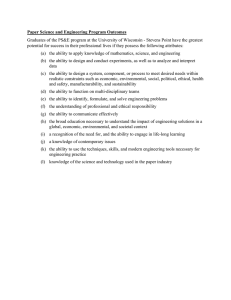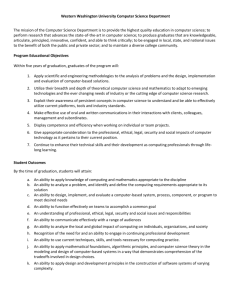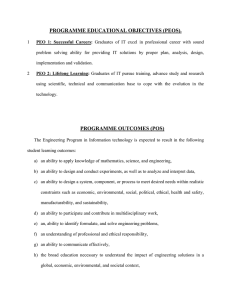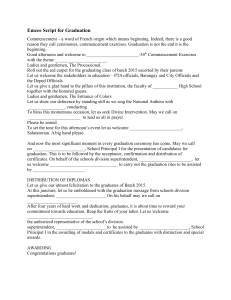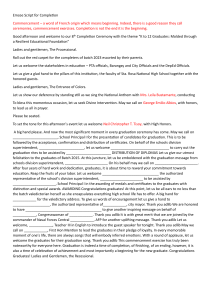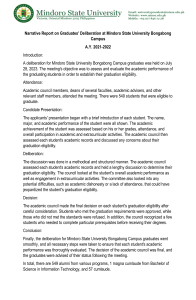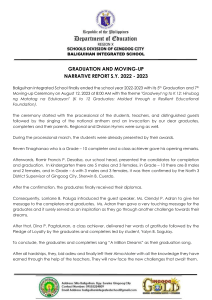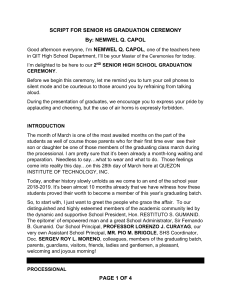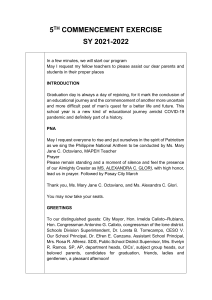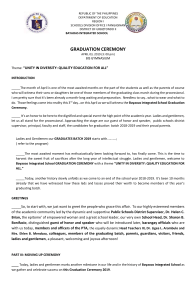Goals, Objectives, and Outcomes for the Civil and Construction
advertisement
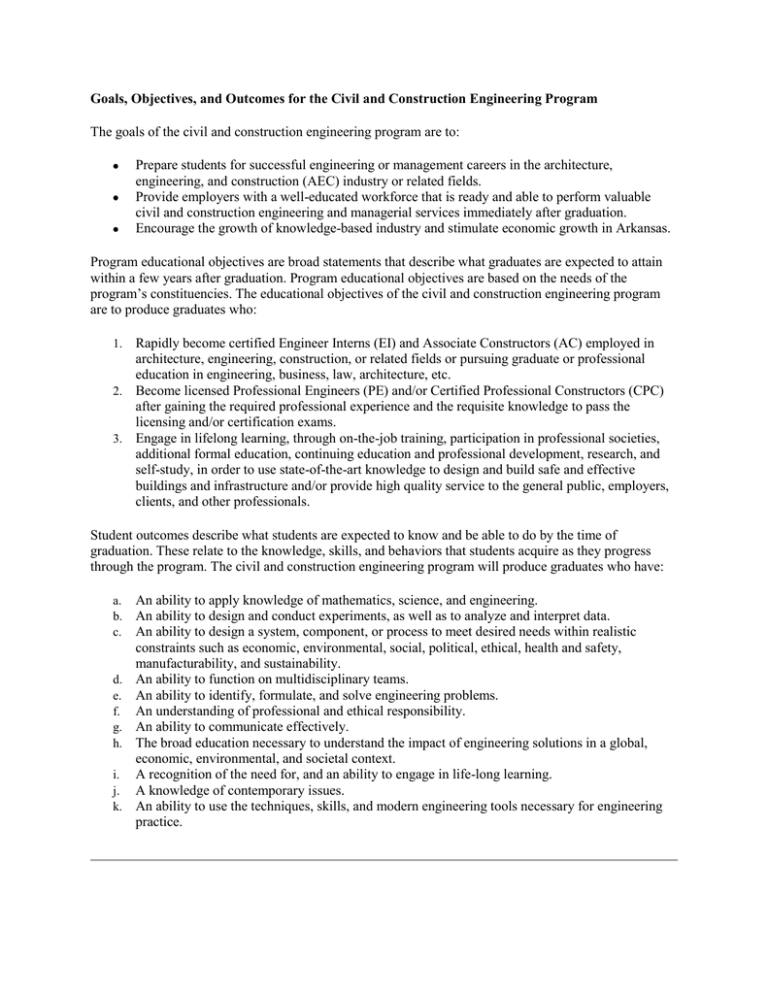
Goals, Objectives, and Outcomes for the Civil and Construction Engineering Program The goals of the civil and construction engineering program are to: Prepare students for successful engineering or management careers in the architecture, engineering, and construction (AEC) industry or related fields. Provide employers with a well-educated workforce that is ready and able to perform valuable civil and construction engineering and managerial services immediately after graduation. Encourage the growth of knowledge-based industry and stimulate economic growth in Arkansas. Program educational objectives are broad statements that describe what graduates are expected to attain within a few years after graduation. Program educational objectives are based on the needs of the program’s constituencies. The educational objectives of the civil and construction engineering program are to produce graduates who: Rapidly become certified Engineer Interns (EI) and Associate Constructors (AC) employed in architecture, engineering, construction, or related fields or pursuing graduate or professional education in engineering, business, law, architecture, etc. 2. Become licensed Professional Engineers (PE) and/or Certified Professional Constructors (CPC) after gaining the required professional experience and the requisite knowledge to pass the licensing and/or certification exams. 3. Engage in lifelong learning, through on-the-job training, participation in professional societies, additional formal education, continuing education and professional development, research, and self-study, in order to use state-of-the-art knowledge to design and build safe and effective buildings and infrastructure and/or provide high quality service to the general public, employers, clients, and other professionals. 1. Student outcomes describe what students are expected to know and be able to do by the time of graduation. These relate to the knowledge, skills, and behaviors that students acquire as they progress through the program. The civil and construction engineering program will produce graduates who have: a. b. c. d. e. f. g. h. i. j. k. An ability to apply knowledge of mathematics, science, and engineering. An ability to design and conduct experiments, as well as to analyze and interpret data. An ability to design a system, component, or process to meet desired needs within realistic constraints such as economic, environmental, social, political, ethical, health and safety, manufacturability, and sustainability. An ability to function on multidisciplinary teams. An ability to identify, formulate, and solve engineering problems. An understanding of professional and ethical responsibility. An ability to communicate effectively. The broad education necessary to understand the impact of engineering solutions in a global, economic, environmental, and societal context. A recognition of the need for, and an ability to engage in life-long learning. A knowledge of contemporary issues. An ability to use the techniques, skills, and modern engineering tools necessary for engineering practice.
